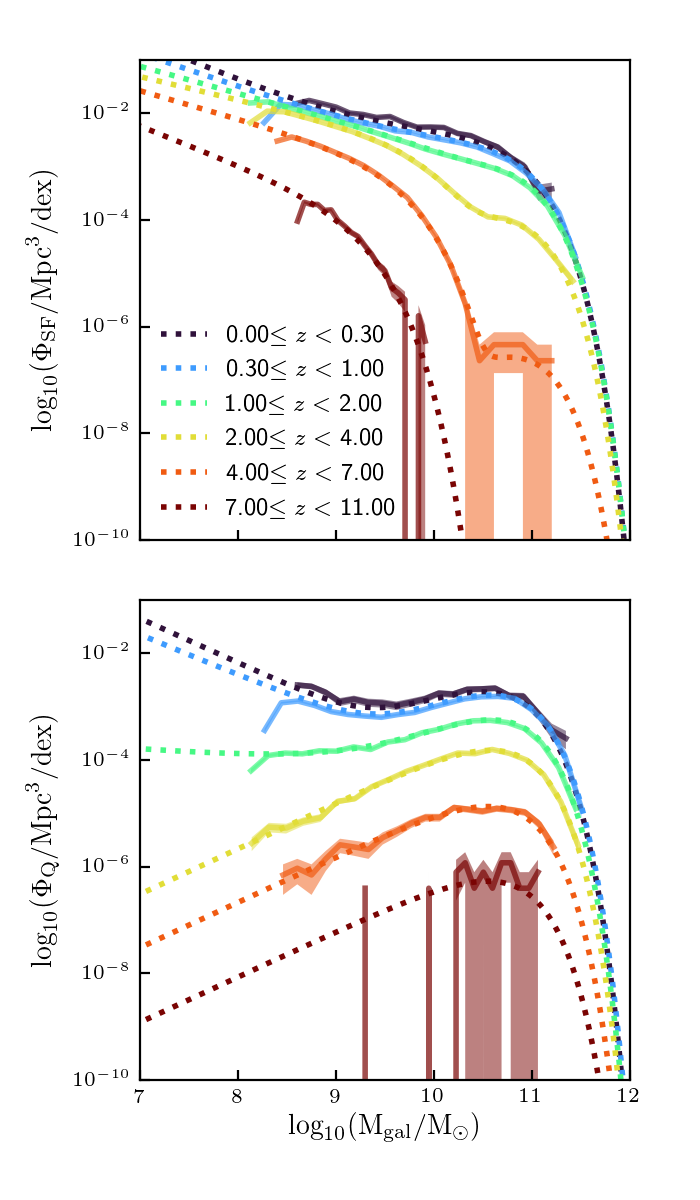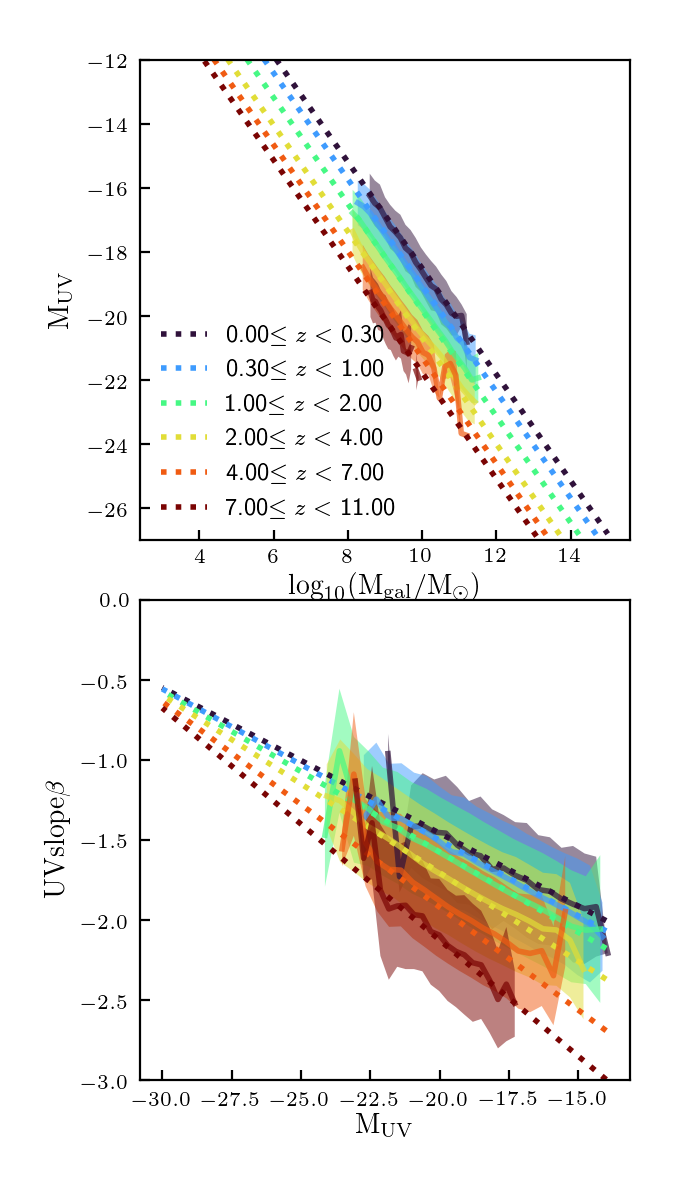Nicole Drakos
Research Blog
Welcome to my Research Blog.
This is mostly meant to document what I am working on for myself, and to communicate with my colleagues. It is likely filled with errors!
This project is maintained by ndrakos
Integrated Galaxy Properties
In this post, I outlined the general method for assigning galaxy properties to the galaxy catalog. Here is the first step of the process: assigning integrated galaxy properties to the star-forming galaxies.
Star-Forming Versus Quiescent
To determine which galaxies were star-forming, I used the SMFs (right now just using the Williams SMFs—I still need to update these) to get the probabilty of a galaxy being star-forming as a function of mass and redshift, and then randomly decided whether it was star-forming based on this probability.
Here are the recovered SMFs of the two populations (star-forming on top and quiescent on the bottom):

I don’t know if there are properties that correlate strongly with queiscence (e.g. halo properties or environment) that I should be including. I need to look into this.
UV
The UV magnitude, \(M_{UV}\), and UV continuum slope, \(\beta\) were assigned from the linear relations given in Williams et al. 2018.
I realized their Equation 11 is not correct. To my best reasoning, their parameters should be \((a,b,c)=(-0.08,-0.12,9.43)\) not \((a,b,c)=(0.12,0.08,9.41)\).
Here are the assigned properties:

In Williams, they truncated the \(\beta\) distribution at \(-2.6\), which is a theoretical limit corresponding to the bluest \(\beta\) value you can get in BEAGLE. Right now, I am not truncating the distribution there; this is something I should add in before matching to SEDs from BEAGLE.